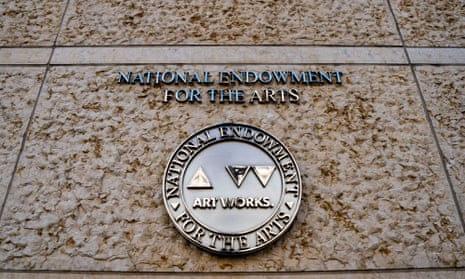The Future of the NEA: What Federal Grant Cuts Mean for the Arts in America

The National Endowment for the Arts (NEA) has long been a cornerstone of federal support for creativity and culture in the United States. Recent developments, however, have cast uncertainty on the agency’s future and raised concerns for artists and organizations across the nation.
What Is the NEA and Why Does It Matter?
Founded by Congress in 1965, the NEA has provided crucial grant funding to support arts projects large and small, in every corner of the United States. With over $5.5 billion awarded to date, the agency helps bring theater, visual arts, and educational experiences to millions. Though the NEA represents just 0.003% of the federal budget, it holds profound significance for both prominent and grassroots groups. Organizations often see an NEA grant as a seal of approval, boosting their visibility and ability to secure additional backing.
The Latest Round of Grant Cuts and Policy Shifts
In May 2025, the Trump administration proposed eliminating the NEA as part of a broader push to reduce the size of government. This proposal included immediate cancellation of existing grants, delivered via email to hundreds of arts institutions. According to NPR's detailed coverage, many groups were left scrambling as their funding disappeared overnight. Recipients like Berkeley Repertory Theater, Studio Two Three, and the Cornerstone Theater Company lost funds that had already been awarded.
The NEA cited a shift in priorities, focusing their limited funds on select initiatives such as supporting projects tied to AI competency, houses of worship, historic universities, and military communities. Despite this, groups working on projects aligned with these objectives also saw their grants withdrawn, further deepening the confusion and frustration.
Reactions From the Arts Community
These changes have sparked strong reactions from cultural leaders and lawmakers. As highlighted in The Guardian's recent report, cancellation notices affected organizations from Portland playhouses to Yale's repertory theater. Critics—including union leaders and politicians—argue that cutting NEA funding undermines accessibility, diversity, and the economic vitality of arts communities.
Erin Harkey, CEO of Americans for the Arts, stressed that "the NEA plays a vital role in the lives of millions of Americans." Many, like the American Federation of Musicians, say these cuts will especially hit rural and under-resourced areas, reducing access to the arts.
Why the NEA's Support Is So Important
The NEA's grants often serve as a lifeline for organizations operating with tight budgets. Funding helps sustain programming for children, veterans, and marginalized communities. Terminating these grants not only affects the present generation of artists but also threatens the long-term health of America’s cultural landscape.
Arts funding has historically been a bipartisan cause. While targeted by budget proposals under multiple administrations, support for the NEA frequently persists in Congress because the arts generate jobs and foster a strong sense of national identity. The fate of the NEA now depends on continued advocacy and legislative decisions.
What Lies Ahead for the NEA?
Although the future is uncertain, the recent grant cuts and calls for elimination have galvanized many in the arts sector to push for continued support. If you care about sustaining creativity, community, and cultural diversity, now is the time to reach out to local representatives and express your support for maintaining the National Endowment for the Arts.
For deeper insights and ongoing updates, explore NPR’s in-depth analysis of the NEA grant cuts and The Guardian’s breaking news on grant terminations.